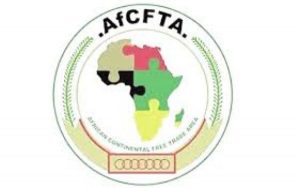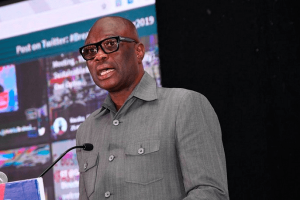The Customs Division of the Ghana Revenue Authority (GRA) in collaboration with its partners from the United States of America, under the Security Governance Initiative is working towards the introduction of a modern e-cargo tracking system.
According to the Deputy Commissioner in Charge of Ethics and Good Governance at Customs, Alhaji Seidu Iddrisu Iddisah, the e-tracking system when deployed will provide durable smart devices with long lasting battery life that can trigger alarms during any abusive practices.
He said, “there are some which have the power to last for about two months which other jurisdictions are using. They also have devices that, at any of the intervening stations or checkpoints, you can point to the tracker and it will give you details of the declaration of the goods inside. So, if there is any tampering, it would give alerts.”
The Deputy Commissioner said the prospective e-tracking system due to its smart technology and features will serve as support to the trackers being deployed in the country currently.
“This facility will provide real time monitoring. The intention is that for goods with high revenue and security implications, we will use this in addition to what exists.”
He said a flawless cargo tracking system would inure to the benefit of all parties in the transit trade because it would lead to the decongesting of the port, secure state revenue, facilitate trade while fishing out offenders.
The Customs official explained the vision of this project is to see strengthened collaboration between neighbouring customs, where tracking of cargoes can be done beyond the borders of Ghana.
Alhaji Iddisah said, “we saw that being done in Kenya. Somebody could move with transit goods from the port of Mombasa and it will be monitored up to Rwanda or Uganda.”
He revealed that phase 1 of the project comprised the highlighting of some challenges associated with tracking of transit cargo and some inputs for improvement.
Phase 2 of the project will see the introduction of a prototype that takes into consideration the inherent problems identified.
Phase 3 will see full deployment.
Alhaji Seidu Iddrisu Iddisah said findings revealed some inaccuracies associated with the monitoring of cargoes due to strength of devices, insufficient gadgets, internet connectivity problems, among others which have contributed to some delays and malpractices like cargo diversion.
The Security Governance Initiative according to him is also working towards improving interoperability among security agencies to facilitate trade, augment cargo security, revenue collection and road safety.
He revealed that the Security Governance Initiative has seen the United States Government collaborate with other African countries such like Kenya, Niger, Tunisia and Nigeria, with this e-tracking system being successfully deployed in some countries.
He said the procurement and operational process will be funded by the United States Government through its Customs and Border Protection Agency and the estimated cost of project is yet to be declared.







